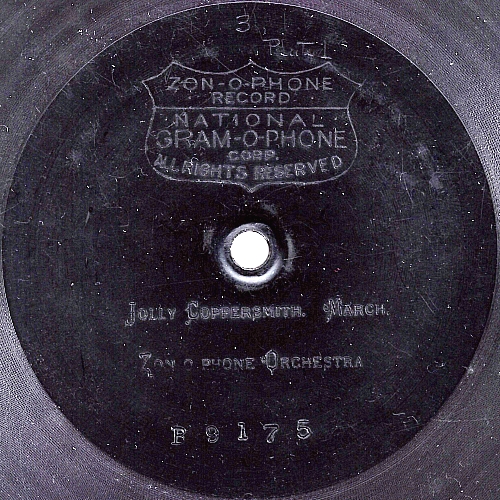

 |
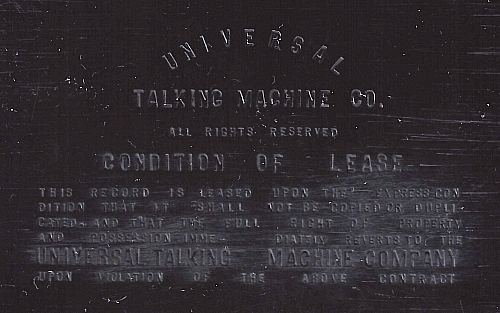 |
| Jolly Coppersmith March | (Blank) |
| Zon-O-Phone Orchestra | |
| Zon-O-Phone B9175; 3, Plate 1 | |
| 1899-1901 | |
| Camden, New Jersey | |
| Note: Grooves closer together towards end. |
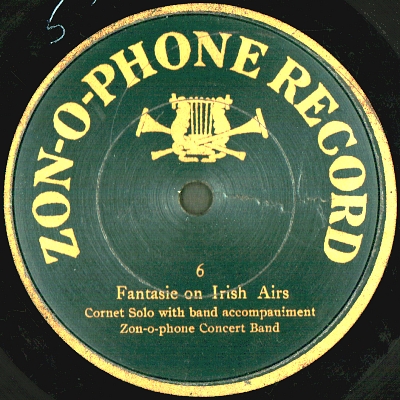 |
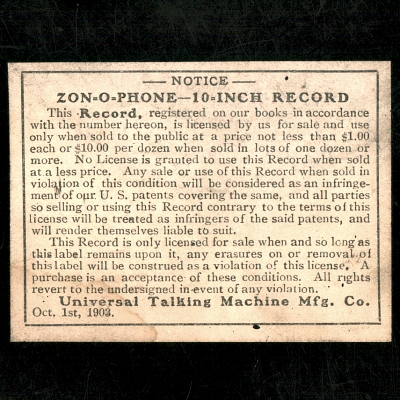 |
| Fantasie on Irish Airs | (Blank) |
| John Hazel with the Zon-O-Phone Concert Band | |
| Zon-O-Phone 6 | |
| Matrix# 3772, Take ? | |
| Before December 1904 | |
| New York, New York |
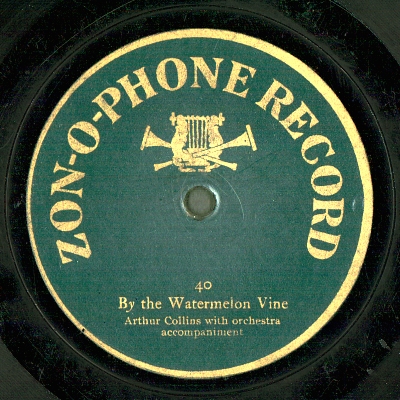 |
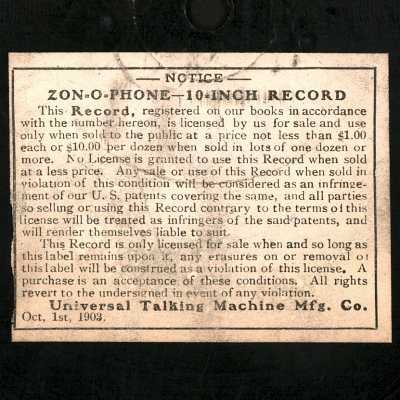 |
| By the Watermelon Vine | (Blank) |
| Arthur Collins | |
| Zon-O-Phone 40 | |
| Matrix# 3833, Take ? | |
| Before January 1905 | |
| New York, New York | |
| Note: Played at 78 RPM. |
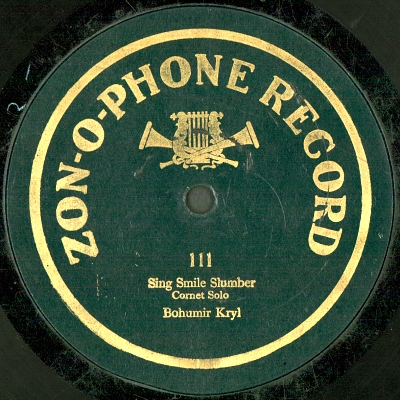 |
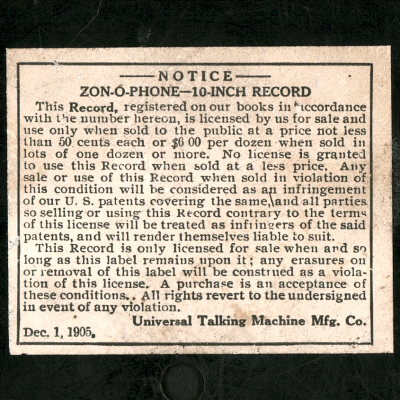 |
| Sing, Smile, Slumber | (Blank) |
| Bohumir Kryl | |
| Zon-O-Phone 111 | |
| Matrix# 4249 (X1357 1), Take ? | |
| Before April 1905 | |
| New York, New York |
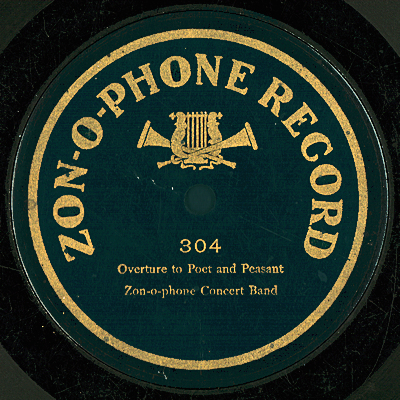 |
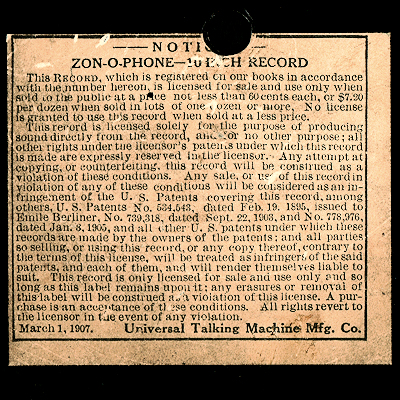 |
| Overture to Poet and Peasant | (Blank) |
| Zon-o-phone Concert Band | |
| Zon-O-Phone 304 | |
| Matrix# 5326, Take ? | |
| Before December 1905 | |
| New York, New York | |
| Note: Very worn, especially at start. |